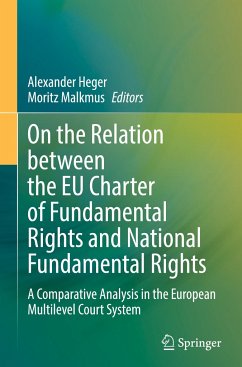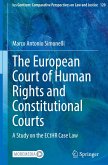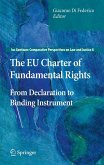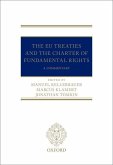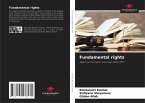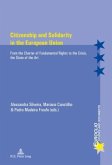The sometimes complex and controversial relation between the fundamental rights of the European Union, as enshrined in the EU Charter of Fundamental Rights (CFR), and national fundamental rights in the context of constitutional review is reflected in a series of landmark decisions in the multilateral cooperation of European courts, which have reshaped the fundamental rights architecture in the multilevel system in recent decades. This book aims to contribute to a systematic and comprehensive analysis of the EU and constitutional law issues involved, thus serving as a reference point for scholars and practitioners dealing with this emerging topic in depth. Following this approach, it sheds light on the broader Union legal context of these developments, examines the role of the CFR for Constitutional Courts, the relationship between constitutional and ordinary courts, and assesses the key decisions concerning the application of the CFR as a standard of constitutional review. Italso draws some initial conclusions on the development of the European fundamental rights architecture, its prospects and possible implications for the Union's legal order.
The book contains several contributions by European legal experts from academia and the judiciary, who examine the different methods of constitutional application of the CFR from a comparative law perspective. These contributions deal with the following aspects: first, the role of the CFR for the respective Constitutional Court with regard to the application of EU law as well as national law falling within the scope of the CFR; second, the relationship between the respective Constitutional Court and the ordinary courts with regard to the application of the CFR; third, the relevant facts and legal reasoning of the most important Constitutional Court decisions on the application of the CFR as a relevant standard of constitutional review; fourth, the relevant case law of the CJEU on the relationship between Union and national fundamental rights, as well as its broader implications for the multilateral cooperation of European courts.
The individual chapters examine, inter alia, the following decisions: Verfassungsgerichtshof (Austria), March 14, 2012, U 466/11 et al.; Corte Constituzionale (Italy), January 23, 2019, Sentenza 20/2019; Bundesverfassungsgericht (Germany), November 6, 2019, 1 BvR 276/17; Tribunal Constitucional (Portugal), June 3, 2022, Acórdão 268/2022; Tribunal Constitucional (Spain), June 29, 2022, Sentencia Decision 89/2022.
The book contains several contributions by European legal experts from academia and the judiciary, who examine the different methods of constitutional application of the CFR from a comparative law perspective. These contributions deal with the following aspects: first, the role of the CFR for the respective Constitutional Court with regard to the application of EU law as well as national law falling within the scope of the CFR; second, the relationship between the respective Constitutional Court and the ordinary courts with regard to the application of the CFR; third, the relevant facts and legal reasoning of the most important Constitutional Court decisions on the application of the CFR as a relevant standard of constitutional review; fourth, the relevant case law of the CJEU on the relationship between Union and national fundamental rights, as well as its broader implications for the multilateral cooperation of European courts.
The individual chapters examine, inter alia, the following decisions: Verfassungsgerichtshof (Austria), March 14, 2012, U 466/11 et al.; Corte Constituzionale (Italy), January 23, 2019, Sentenza 20/2019; Bundesverfassungsgericht (Germany), November 6, 2019, 1 BvR 276/17; Tribunal Constitucional (Portugal), June 3, 2022, Acórdão 268/2022; Tribunal Constitucional (Spain), June 29, 2022, Sentencia Decision 89/2022.

